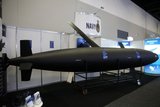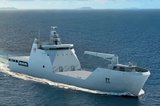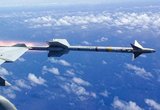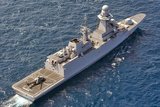European procurement agency signs deal to progress the first phase of the European Patrol Corvette project
A major step has been taken in the EPC programme. (Image: Naviris)
The first phase of the EPC project has commenced project with signature of MMPC contract between Organisation for Joint Armament Cooperation (OCCAR) and partner countries and their industrial groupings.
The consortium of Fincantieri (Italy), Naval Group (France), Navantia (Spain) and other beneficiaries from Greece, Denmark and Norway was coordinated by Navris, an alliance of Fincantieri and Naval Group.
The overall value of this first phase is €87 million (US$97 million) and €60 million will be funded by the European Commission in the form of grants while the remaining €27 million will be funded by the member states of Italy, France, Spain, Denmark, Greece and Norway.
The contract will provide for the initial design of EPC will include at first two main versions: the Long Range Multipurpose and the Full Combat Multipurpose.
A statement from the companies described the programme as ‘representing a step forward in the European defence cooperation [that] will strongly contribute to the European sovereignty in the second line vessels domain [by] increasing efficiency and lowering delays to go from the military need to the delivery to Navies.’
Related Programmes in Defence Insight
European Patrol Corvette (EPC)/Buques de Protección Marítima (BPM) [Spain]
More from Naval Warfare
-
![Ireland releases maritime strategy as it looks to new naval bases and stronger partnerships]()
Ireland releases maritime strategy as it looks to new naval bases and stronger partnerships
Ireland has a maritime area ten times the size of its land mass but has a limited naval capacity and faces an ongoing threat to critical underwater infrastructure. A new strategy is looking to address the challenge.
-
![US Navy to deploy UAVs with standard munitions in long-range strikes]()
US Navy to deploy UAVs with standard munitions in long-range strikes
As part of the Runway Independent Maritime & Expeditionary Strike programme, the US Navy is pursuing drones capable of delivering palletised rounds or 1,000lb-class munitions.
-
![Turkey targets Italian market with strategic partnership on USVs and hybrid platforms]()
Turkey targets Italian market with strategic partnership on USVs and hybrid platforms
Havelsan, VN Maritime and Piloda Defence will collaborate to develop and integrate a range of maritime solutions with a view to secure a first procurement contract in Italy in the first half of this year.





















